
Explore factors influencing oil furnace replacement cost, additional expenses, and savings tips. Make an informed decision for a cozy home.
Don’t give your leaking AC the cold shoulder


An evaporator coil leak can cause the coil to freeze, making it harder for the AC unit to cool the house.
Evaporator coil repairs should always be left to a pro per EPA Section 608.
A hissing sound in the outdoor AC unit is a major sign of a refrigerant leak.
Fixing an evaporator coil leak costs $250 to $2,400.
An evaporator coil lasts 10 to 15 years.
You may not give much thought to your AC system’s evaporator coil—that is, until it breaks, leaving you with problems like warm air blowing from the vents, an AC unit that’s frozen over, or the mess of a flooded drip pan. Watch for these six common signs of a leaking evaporator coil in your AC, plus find out how to fix the problem and prevent future leaks.
Your AC’s evaporator coil contains coolant, or refrigerant. When this coil leaks, the refrigerant escapes. A refrigerant leak is dangerous because inhaling this chemical can cause nausea, vomiting, dizziness, confusion, and asphyxiation, according to the Environmental Protection Agency (EPA). Always leave refrigerant leak repairs to a pro to keep yourself and your family safe.
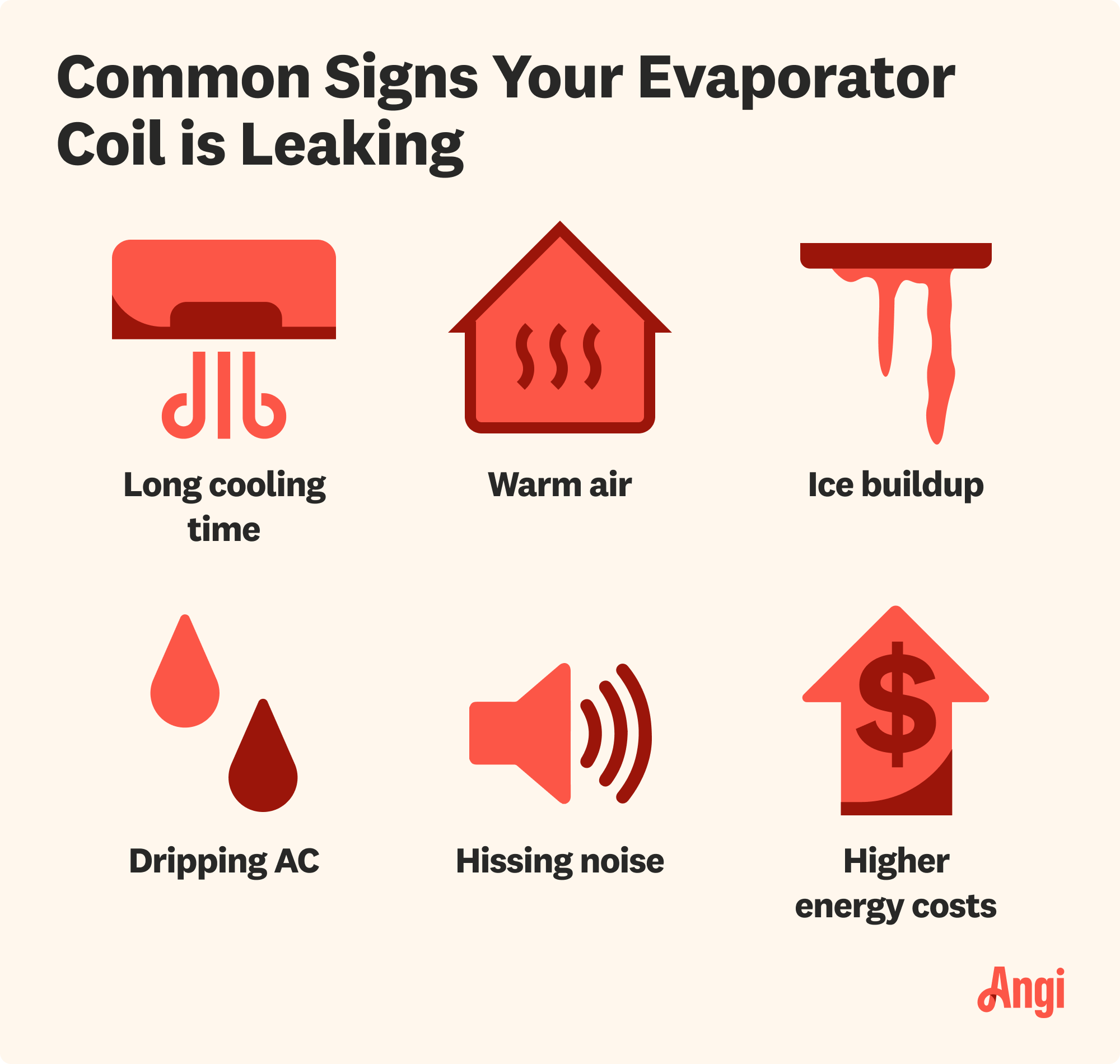
Even though the evaporator coil is located outside of your home, it still presents many symptoms indoors and out when there’s a leak.
If your home’s supply vents aren’t blowing as much air as usual and the AC takes longer to cool your space, your evaporator coil could be leaking. When the evaporator coil has a leak, it prevents the refrigerant in the coil from absorbing enough heat as air passes over the coil. From there, the air leaves behind moisture on the coil that freezes, which restricts airflow. When the airflow is restricted, you’ll notice it takes much longer to cool down your home.
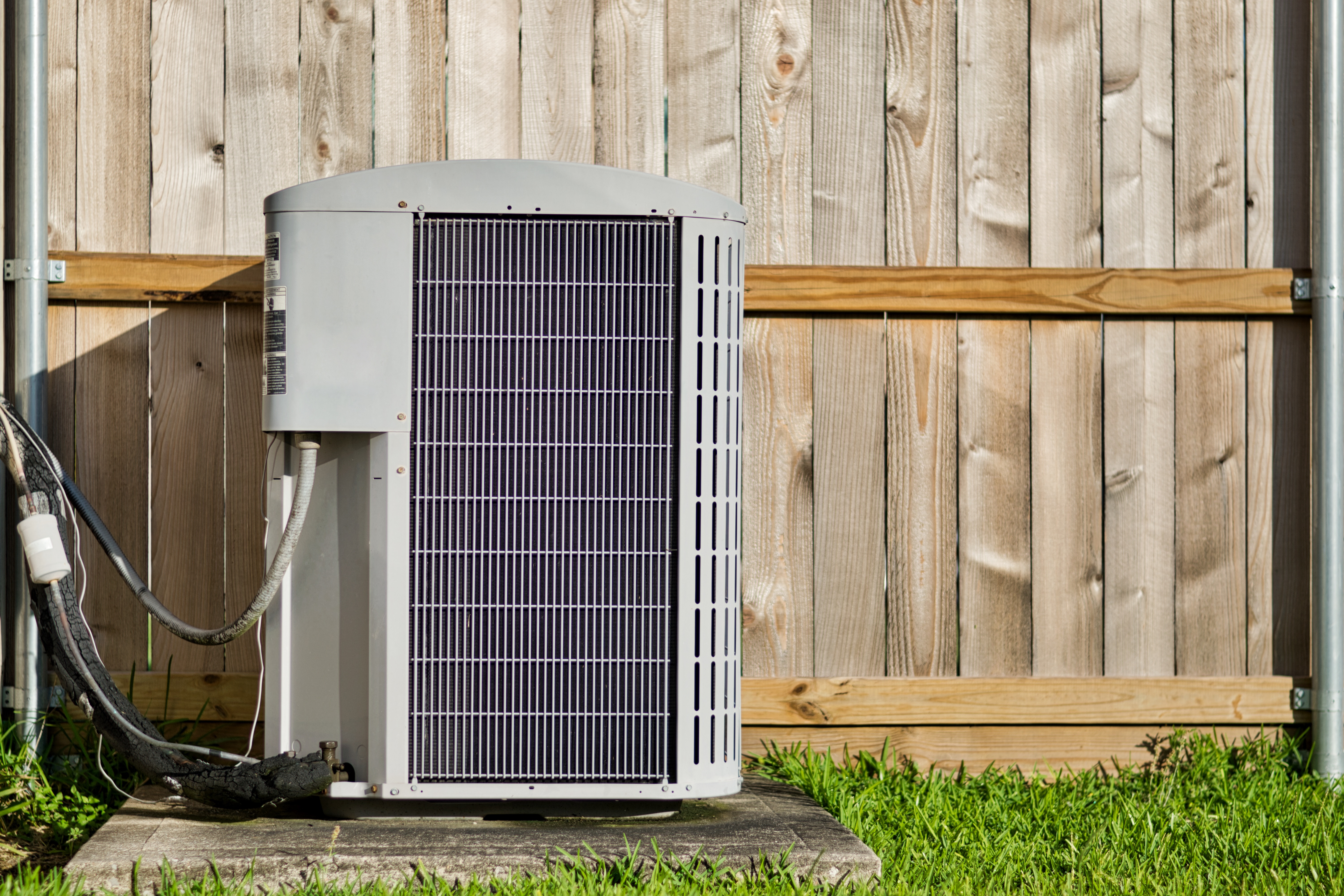
If the evaporator coil is leaking or frozen, it won’t be able to sufficiently cool the air as it passes over. This means that the air that should be cooled will be warm or even hot as it comes through your vents.
Use an infrared thermostat to measure the temperature coming from your air vents. The temperature of the air coming from the supply vents should be 14 to 20 degrees Fahrenheit cooler than the air around the return vents. If the air from the supply vents is less than 14 degrees Fahrenheit cooler than the air near the return vents (or if it’s warmer), it could be a sign of an evaporator coil leak.
A leaking evaporator coil can cause the coil to freeze. When your evaporator coil freezes, it prevents the refrigerant inside the coil from properly absorbing heat, which then means your AC will blow warm air or take longer than usual to cool down your home.
However, sometimes a frozen coil is simply because the air filter needs to be changed or because the evaporator coil is dirty. If changing the filter or scheduling an AC cleaning doesn’t help, then it’s likely a refrigerant leak.
Ice that builds up on a leaking evaporator coil will cause more condensation to run out of the AC and into the drip pan. If you notice your AC’s drip pan is overflowing or there’s water dripping out of the AC, it’s often a sign of a leaking evaporator coil.
One of the biggest signs of a refrigerant leak in your AC’s evaporator coil is a hissing sound coming from the outdoor AC unit. As the pressurized refrigerant escapes, it causes a hissing noise.
If your energy bill is higher out of nowhere, it could be a sign that there’s a leak. When the evaporator coil is leaking, the whole system has to work harder to cool the house. When it takes longer to cool or the AC blows warm air, the unit has to run longer as it tries, but fails, to meet the thermostat setting.
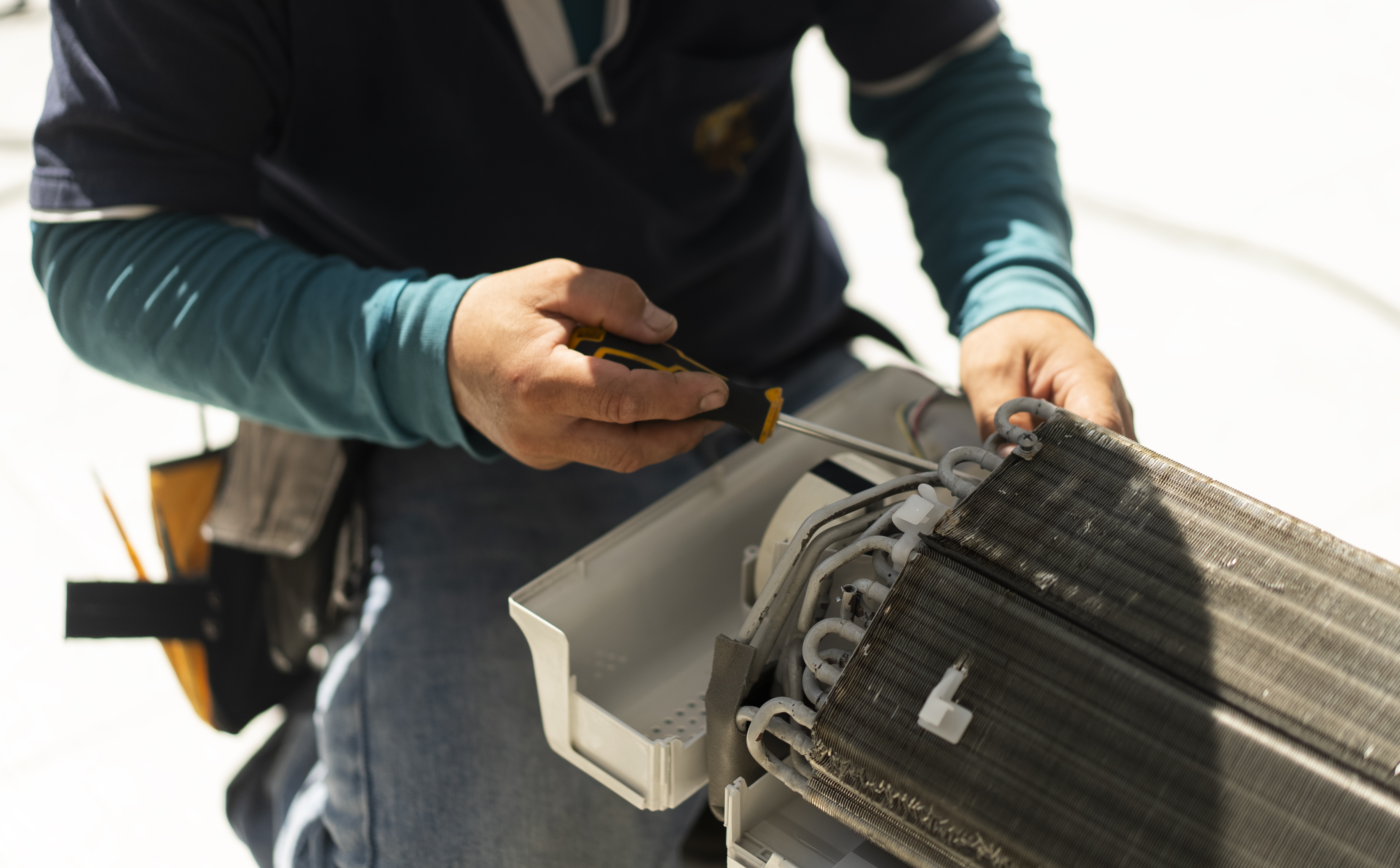
The U.S. EPA requires anyone who is repairing a refrigerant leak in an AC evaporator coil to have a Section 608 certification under the Clean Air Act. Homeowners can handle some minor fixes, like changing out the AC filter, to see if that unfreezes the evaporator coil. However, if you suspect a leak, it’s best to hire an AC repair pro near you to take a look right away. Not only is it the law, but it also reduces the risk of refrigerant poisoning and other risks associated with exposure to coolant.
HVACs are one of the most complicated and essential systems in our homes. To avoid further damage or safety risks, always hire a certified HVAC specialist to repair or replace broken parts.
If your evaporator coil is leaking refrigerant, you should always leave this problem to the pros. However, if the coil is leaking condensation because it’s frozen and the underlying problem is a dirty air filter, this is an easy fix that even a beginner DIYer can fix.
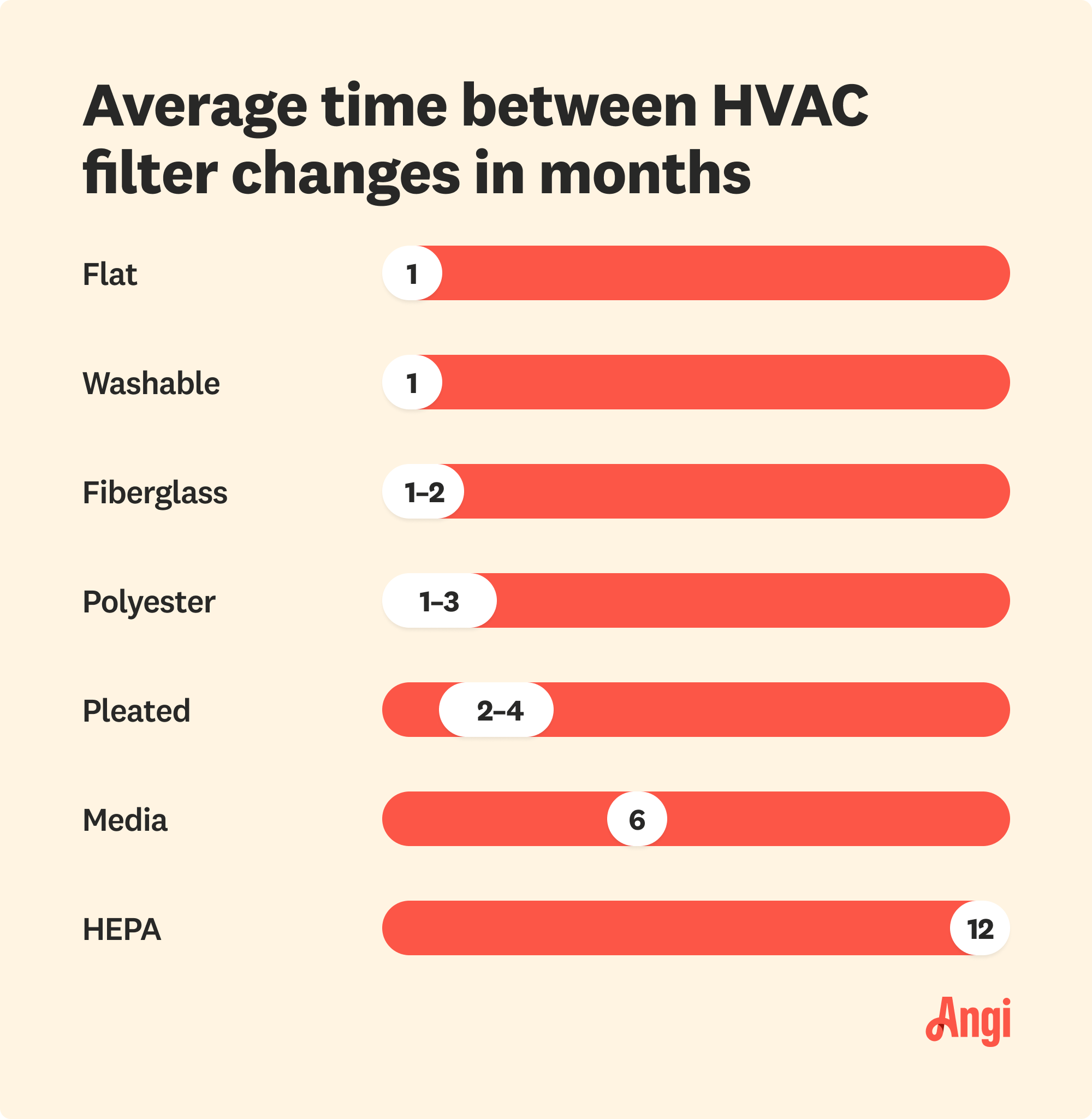
While no evaporator coil can last forever, there are ways to extend the lifespan of yours and minimize the risk of a leak. Here are a few easy ways to keep your evaporator coil in good shape:
Change air filters: Replace your AC filters (or if you have a reusable filter, clean it) at least once every 90 days. This helps prevent the coil from freezing up.
Schedule annual cleanings: Hire a pro to clean your AC coils at least once per year. Removing dirt and debris helps the evaporator coil run more efficiently and minimizes the risk of it freezing up or leaking.
Minimize corrosion: Corrosion can wear down the coil and cause a leak. Use no- or low-VOC paints, carpets, and other materials, and hire a pro for annual inspections to catch signs of corrosion early.
The cost to repair an evaporator coil or replace the entire system depends on the AC size and efficiency. The cost to repair an AC refrigerant leak or replace the evaporator coil is $250 to $2,400, while the cost to replace the entire AC system is $3,900 to $8,000.
From average costs to expert advice, get all the answers you need to get your job done.

Explore factors influencing oil furnace replacement cost, additional expenses, and savings tips. Make an informed decision for a cozy home.

Moving a furnace a few feet is not a huge matter. However, moving a furnace to another room or different part of the house will probably cost a few thousand dollars. It's a major job involving numerous different professionals.

What you’ll pay in Columbus, OH, for furnace repairs depends on many factors. Here’s a breakdown of what can go wrong and the cost to fix those issues.
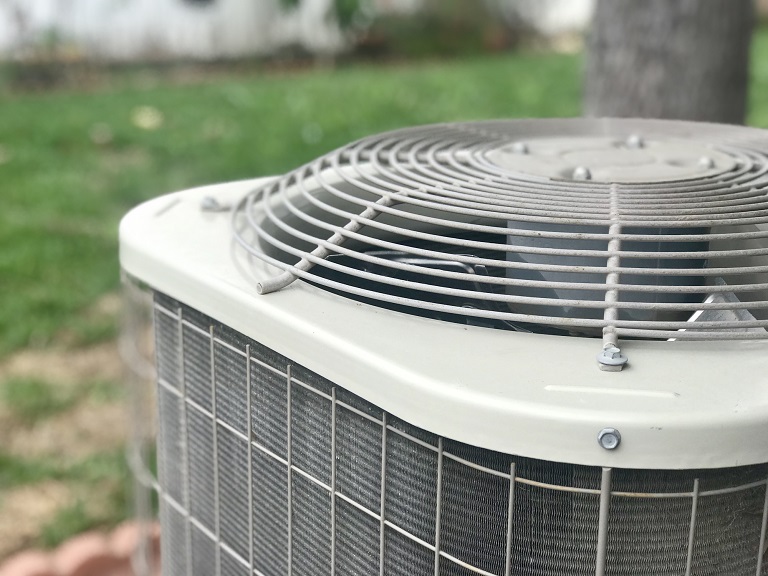
Discover the average air handler replacement cost, including labor and materials, plus expert tips to help you budget and save on your HVAC upgrade.

Keep your home perfectly cool during the warm months. Learn about nine types of air conditioners and how to choose the right one for your home.

Not sure who to hire to install radiant floor heating? Learn which pros handle radiant floor heating installation and how the work comes together.